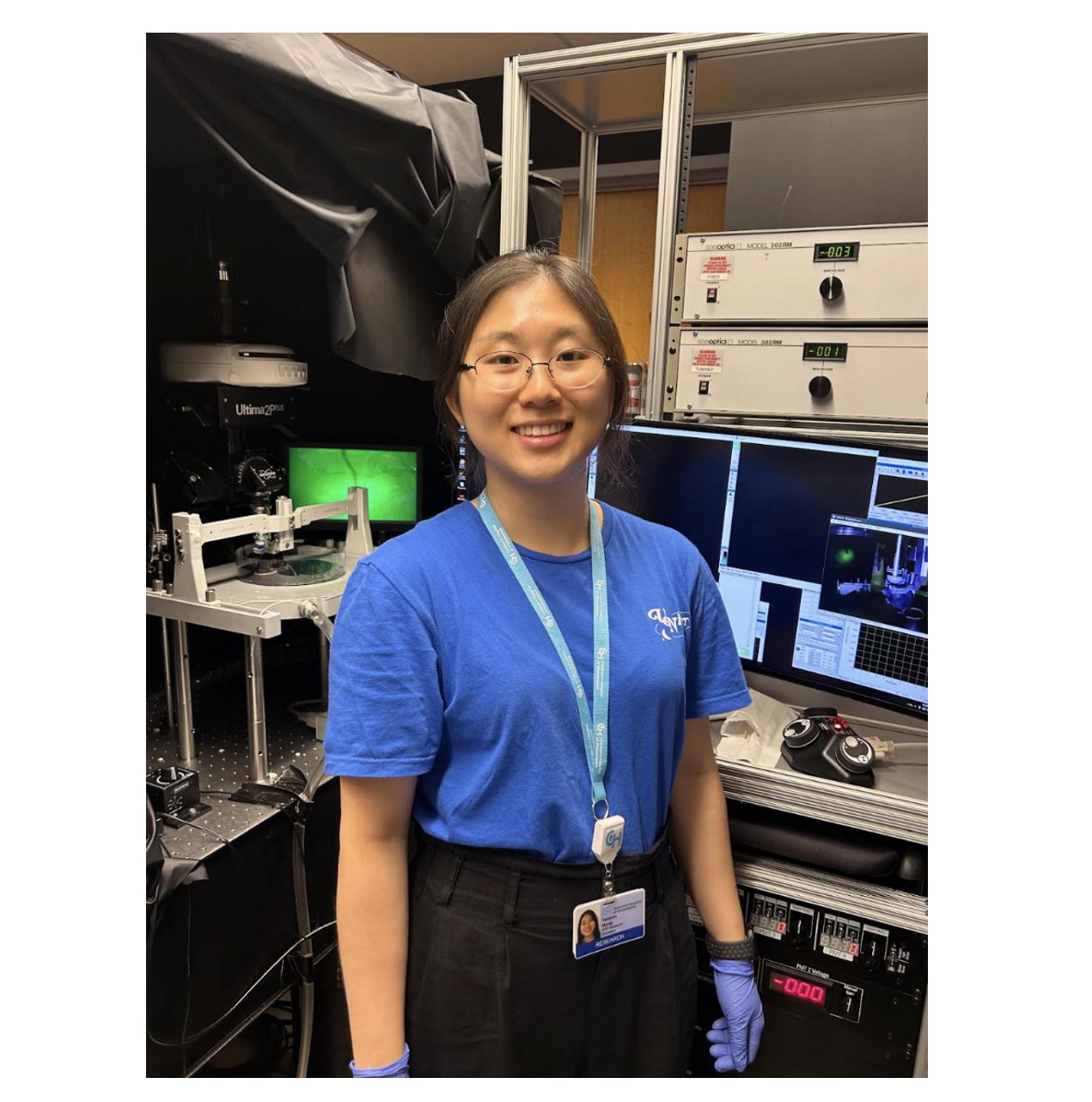
Yerahm Hong ('26), a Bioengineering major, conducted research on developing a mouse model to better understand Dravet Syndrome, a childhood epilepsy disorder, with the mentorship of Dr. Ethan Goldberg (Department of Neurology). This research was supported by the Class of 1971 Robert J. Holtz Fund Grant.
My research project is on developing a mouse model of focal epilepsy in order to study neuronal network dysfunction at a cellular level. This current project is a continuation of investigating Dravet Syndrome (DS), a childhood epilepsy disorder, but is different from the behavioral project that I began working on through the Penn Undergraduate Research Mentoring Program (PURM) last summer (read last year's reflection here). I wanted to continue my investigation on the same topic and dig deeper to challenge myself to see what a fully-fleshed undergraduate research project could look like, and I pivoted toward in vivo image analysis of seizures because the project has more technical aspects to it (e.g. two-photon microscopy, image analysis, mouse brain surgery) to complement my engineering education.
While this is a very technically involved project, it is also exciting because each mouse surgery keeps me motivated to see if it “worked.” I was definitely a lot busier than I was my first summer and it was challenging to keep up with all of my responsibilities and also take care of myself. I learned how to become more self-disciplined while also taking care of my well-being, helping me understand what it means to be kind to myself when there are tough days when I don’t reach all of my goals.
My research experience also allowed me to improve my dialogue skills as a scientist. During the last few weeks in lab, I was preparing for my end-of-summer research symposium where I had to present a one-minute flash talk about my poster and prepare a poster talk for a poster judging session. I also had to prepare a data presentation for my lab, summarizing all of the data that I had collected throughout my year in the lab. I got to practice presenting my research to a variety of audiences: to my lab (which were a group of experts in the field), to my fellow engineering peers, and PhD students outside of the discipline. I became more attuned to the audience I was trying to reach through these opportunities to practice, and realized the importance of thinking about how to communicate the complex science I was doing to a lay audience AND also an expert audience. It’s so easy to brush off the audience part of it, but what good is good science if you can’t communicate it?
Honestly, the highlight of the research symposium was not the fact that I was able to garner a lot of interest from the audience for my one-minute flash talk; not even my first-place award for best poster presentation (though I was so happy to see all of my hard work this summer come to fruition!). It was the “a-ha” moment and the energy of excitement that I felt from seeing a chemistry PhD student understand my neuroscience project. When he told me he was able to follow my entire poster presentation despite not knowing much about neuroscience, and how he complimented my analogy to electrochemistry to help him learn about neuronal action potentials, I realized that the practice I had put in to communicate my research was worth the hard work.
I am very grateful that through CURF, I could spend a second summer at Penn conducting research. This summer allowed me to mature in ways I couldn't have imagined back when I was "just a sophomore." In just a few months, I have grown a bit more confident in my future trajectory. I have been inspired in many ways through the variety of my summer experiences. It’s an interesting question I face whether or not I want to continue the kind of research I am doing as a career. I feel that I’ve explored this field on a deeper level than most undergraduates at this point and want to expand my horizons a bit more. I want to see if I can turn my research-oriented thinking toward a project focused on public health, which would be a new direction for me.
Interested in reading more first-hand accounts about undergraduate research? Check out the other experiences featured on our Student News Page and Social Media!